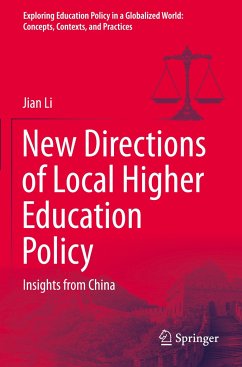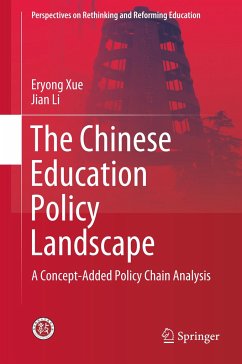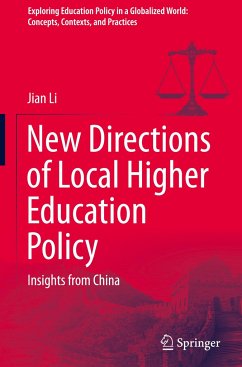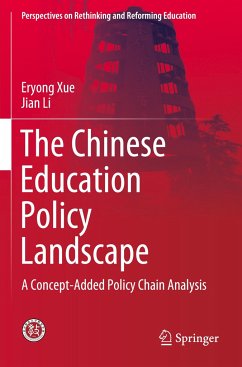
The Future of Higher Education A Student's Guide to Policy and Reform
Versandkostenfrei!
Versandfertig in 1-2 Wochen
23,99 €
inkl. MwSt.

PAYBACK Punkte
12 °P sammeln!
Higher education policy plays a significant role in shaping the future of education and the overall development of a nation. In this subchapter, we will delve into the intricacies of higher education policy, exploring its importance and impact on students and the educational system as a whole. To comprehend higher education policy, it is crucial to understand its definition and purpose. Higher education policy refers to the rules, regulations, and guidelines set by governments or educational institutions to govern the functioning, funding, and quality assurance of higher education. These polic...
Higher education policy plays a significant role in shaping the future of education and the overall development of a nation. In this subchapter, we will delve into the intricacies of higher education policy, exploring its importance and impact on students and the educational system as a whole. To comprehend higher education policy, it is crucial to understand its definition and purpose. Higher education policy refers to the rules, regulations, and guidelines set by governments or educational institutions to govern the functioning, funding, and quality assurance of higher education. These policies are designed to promote accessibility, affordability, equity, and excellence in higher education. One of the fundamental aspects of higher education policy is accessibility. Policy measures are implemented to ensure that students from all backgrounds have equal opportunities to access higher education. This includes initiatives such as scholarships, grants, and affirmative action programs that aim to bridge the gap between privileged and marginalized students. By promoting accessibility, higher education policy strives to create a more inclusive society and provide equal educational opportunities for all. Affordability is another critical aspect of higher education policy. With rising tuition fees and the increasing financial burden on students, policymakers aim to develop policies that make higher education more affordable. This includes the provision of financial aid, student loan programs, and the regulation of tuition fees to prevent excessive hikes. By addressing affordability, higher education policy seeks to reduce financial barriers and ensure that students can pursue their educational aspirations without undue financial stress. Equity is a core value in higher education policy. Policies are developed to address systemic inequalities and promote fairness in the distribution of educational resources. This includes efforts to increase representation of underrepresented groups in higher education institutions and support initiatives that cater to students from diverse backgrounds. By fostering equity, higher education policy aims to create a level playing field for all students, irrespective of their socioeconomic status, race, or gender. Lastly, higher education policy focuses on excellence. Policies are designed to maintain and enhance the quality of higher education by establishing standards, accreditation processes, and quality assurance mechanisms. This ensures that students receive a rigorous and relevant education that prepares them for the challenges of the workforce and society. Understanding higher education policy is crucial for students as it directly affects their educational journey and future prospects. By familiarizing themselves with the policies governing higher education, students can actively engage in advocating for their rights, shaping educational reforms, and becoming informed stakeholders in the higher education system.












